The Maldives is one of the world’s most unique and enchanting holiday destinations. This paradise archipelago, consisting of 26 atolls scattered across the Indian Ocean, is renowned for its turquoise waters, white sandy beaches, and unparalleled natural beauty. Every year, millions of tourists are drawn to the Maldives, known for its luxury resorts, overwater bungalows, and exceptional marine life—a true corner of paradise.
No matter where you are, the allure of the Maldives will captivate you. Besides enticing holidaymakers with its tranquil atmosphere and stunning vistas, the Maldives is also a popular choice for exclusive honeymoon getaways. These tropical islands not only dazzle with their beauty but also draw attention with their rich cultural heritage and sustainable tourism efforts.
Visiting the Maldives is more than just a vacation; it’s an adventure. In this article, we’ll take an introductory journey into the enchanting world of the islands, discovering where they are, how to get there, and delving into the history of this unique destination. Get ready, because this imaginary journey to the Maldives could turn into a memorable adventure filled with unforgettable memories.
Table of Contents
Where are the Maldives?
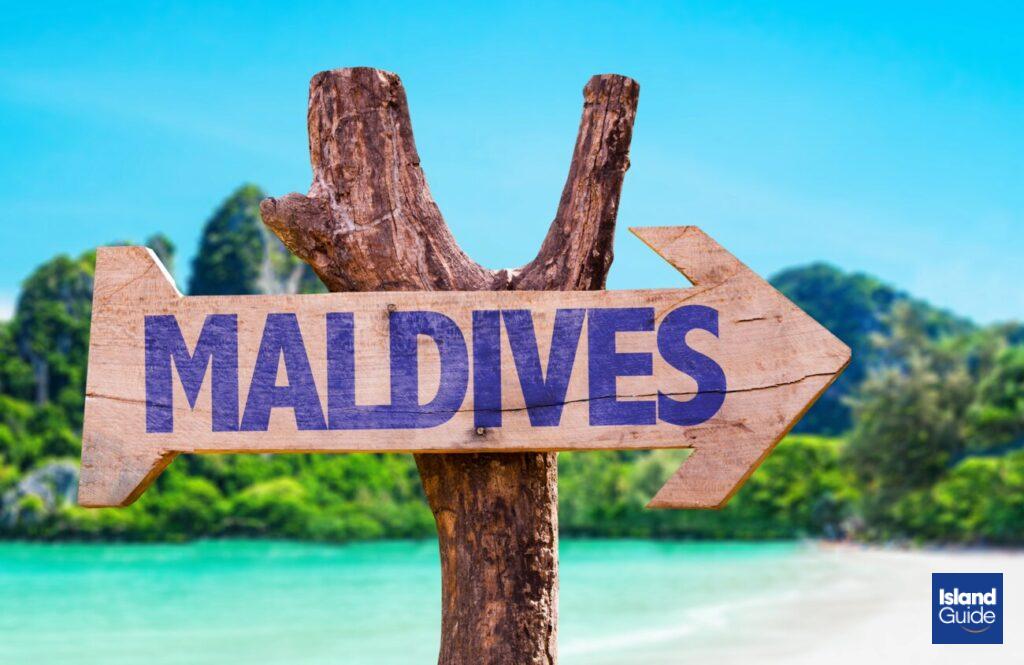
The Maldives is an island nation located southwest of the Indian Ocean, south of Sri Lanka and India. Geographically, it consists of 26 large atolls and more than 1,000 coral islands within these atolls. Each of these islands, known for their unique beauty, is famous for its turquoise waters and pristine white sandy beaches.
The island is located quite close to the equator, which gives the region a warm and tropical climate throughout the year. While these stunning islands may not stand out on the world map, they attract millions of visitors with their natural beauty.
This tropical paradise includes the capital island of Malé, which is often used as the starting point for tourists. The various atolls of the island offer different holiday experiences, each with its own unique atmosphere. Each atoll is surrounded by distinct coral reefs and rich marine life, providing an ideal environment for underwater exploration.
How to Get to the Maldives?
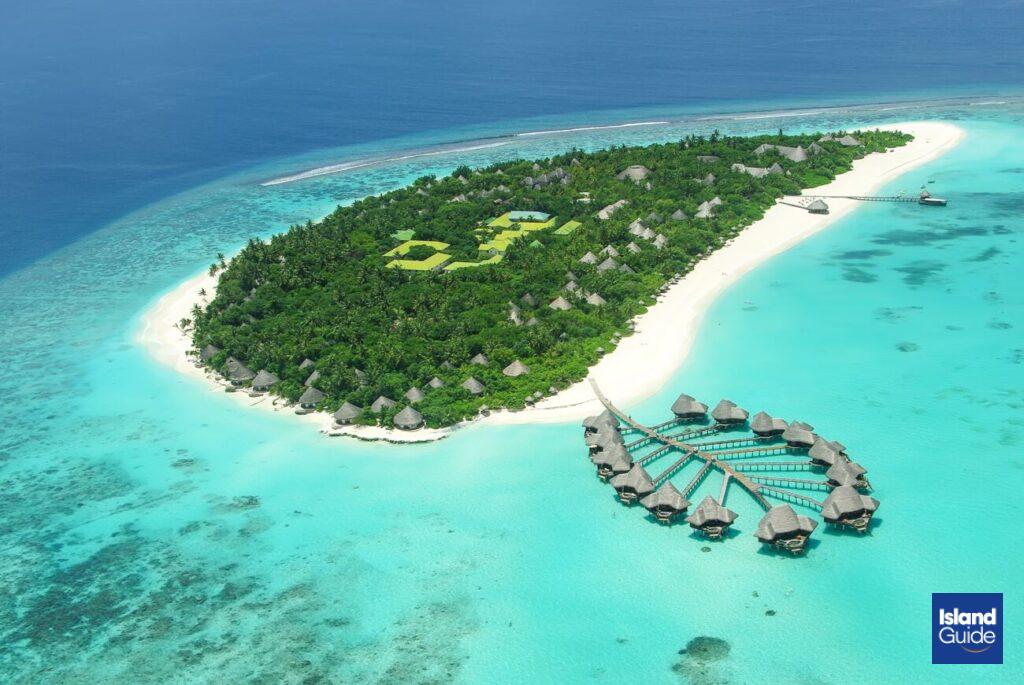
Reaching the Maldives involves various transportation options for visitors coming from different parts of the world. Here are some general pieces of information on how to get to the Maldives:
By Air
The most common way to reach the Maldives is by international flights. Malé International Airport is located in the capital city of Malé and offers direct flights from many major airports around the world. If you want to travel to the Maldives from Turkey or any other country, it’s important to check for direct flights to Malé International Airport first.
Connecting Flights
You can also opt for connecting flights at many stopover points to reach the Maldives. In this case, you typically change planes at a common transit point (such as Dubai, Doha, or Singapore) to reach Malé.
Sea Transportation
Due to its location in the Indian Ocean, reaching the island by sea transportation may be an option for some individuals. However, it’s generally not practical and not a commonly preferred method of transportation.
Local Transportation
Inter-island transportation within the Maldives is typically facilitated by seaplanes or speedboats. These local transportation vehicles are commonly used for travel from Malé to other islands.
Before traveling to the island, it’s important to check the current visa and travel requirements. Additionally, it’s recommended to plan ahead to determine the most suitable and comfortable transportation options for your travel dates.
The History of the Maldives
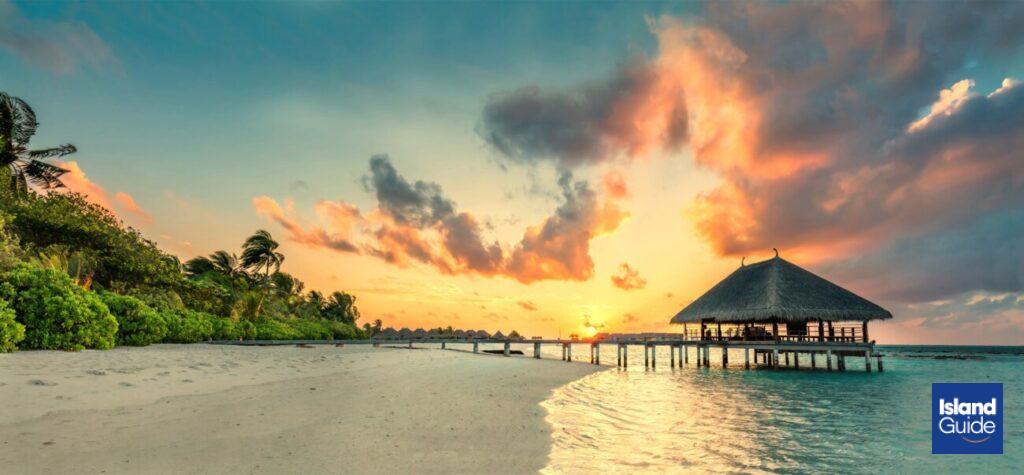
The Maldives has been influenced by different cultures throughout its history, possessing a rich and diverse past. Here’s a brief overview of the island’s history:
First Settlements and Acceptance of Islam
It is believed that the first settlements in the Maldives date back to the 3rd century BCE. However, in 1153, Muslim traders introduced Islam to the islands, leading to the adoption of Islam as the official religion of the Maldives. From this point on, the island developed prosperous trade relations with other Islamic communities in the Indian Ocean.
Portuguese and Dutch Periods
In the 16th century, the Portuguese showed interest in the Maldives and briefly occupied the islands. Later, the Dutch gained control of the region but could not establish long-term dominance.
British Rule and Independence
Towards the end of the 19th century, the Maldives came under British protection. However, it declared independence in 1965 and achieved full independence in 1968.
Contemporary Period
After gaining independence, the Maldives focused on strengthening its economy by emphasizing the tourism sector. This tropical paradise, which attracted a surge of tourists by the late 1970s, has become a globally popular holiday destination today.
The history of the Maldives encompasses cultural diversity, religious changes, and international relations. Today, the island offers travelers a unique experience with its rich historical treasures and natural beauty.
What are the structures of the Maldives?
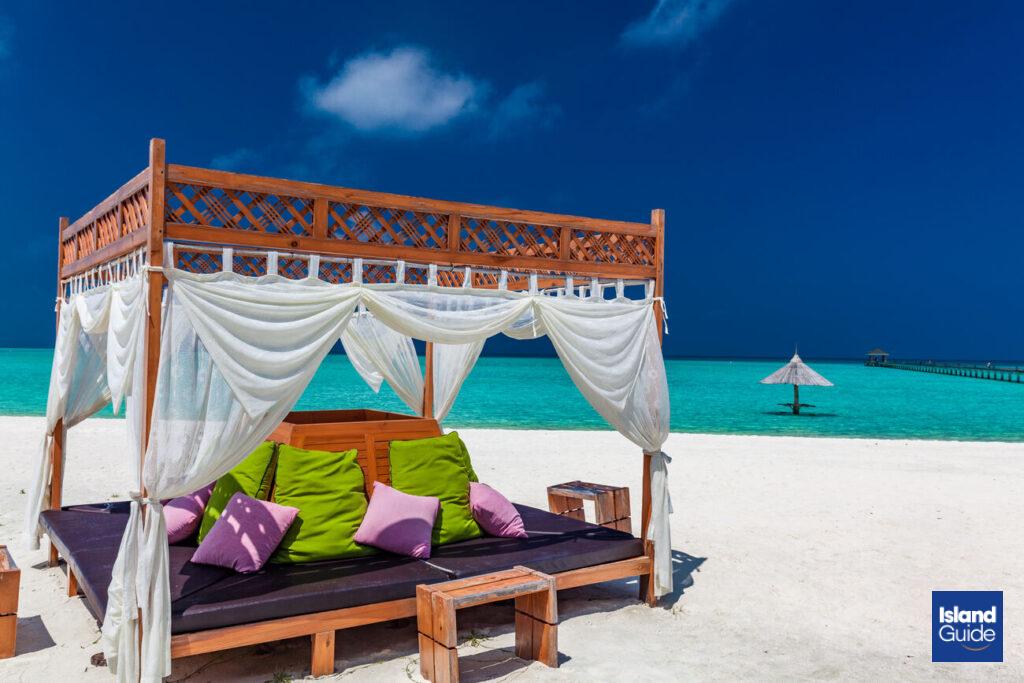
The Maldives is renowned not only for its natural beauty but also for its unique architecture and accommodation facilities. The structures on the islands typically blend traditional Maldivian style with modern luxury. Here are some significant types of structures in the Maldives:
- Overwater Bungalows: The Maldives is home to some of the world’s most famous overwater bungalows. These luxury accommodation units are stylish wooden houses built over the water. Each bungalow offers guests the opportunity to observe the colorful coral reefs underwater.
- Resorts and Hotels: It is a destination filled with luxury resorts and hotels. These facilities boast expansive beaches, private pools, spa centers, and various restaurants. They often stand out with their environmentally friendly designs.
- Underwater Restaurants: It is famous for its underwater restaurants. These restaurants offer guests a unique dining experience underwater, where they can enjoy observing colorful fish and coral reefs, making for an unforgettable evening.
- Coral Stone Mosque and Historical Buildings: It is also known for its historical structures. One example of Maldivian architecture is the Hukuru Miskiy Mosque in Male city. This mosque, constructed in the 17th century, is made from processed coral stone.
- Sustainable Accommodation: In recent years, it has been hosting eco-friendly accommodation units as part of sustainable tourism efforts. These facilities lead practices such as conserving natural resources, waste management, and using environmentally friendly energy.
The structures on the island, each offering its own unique atmosphere, provide guests with an unforgettable experience. These buildings often stand out for their use of local materials and the blending of traditional design elements with modern comforts.
Bali Island Guide: The Gates of Tropical Paradise Are Opening
The Natural Beauties of the Maldives
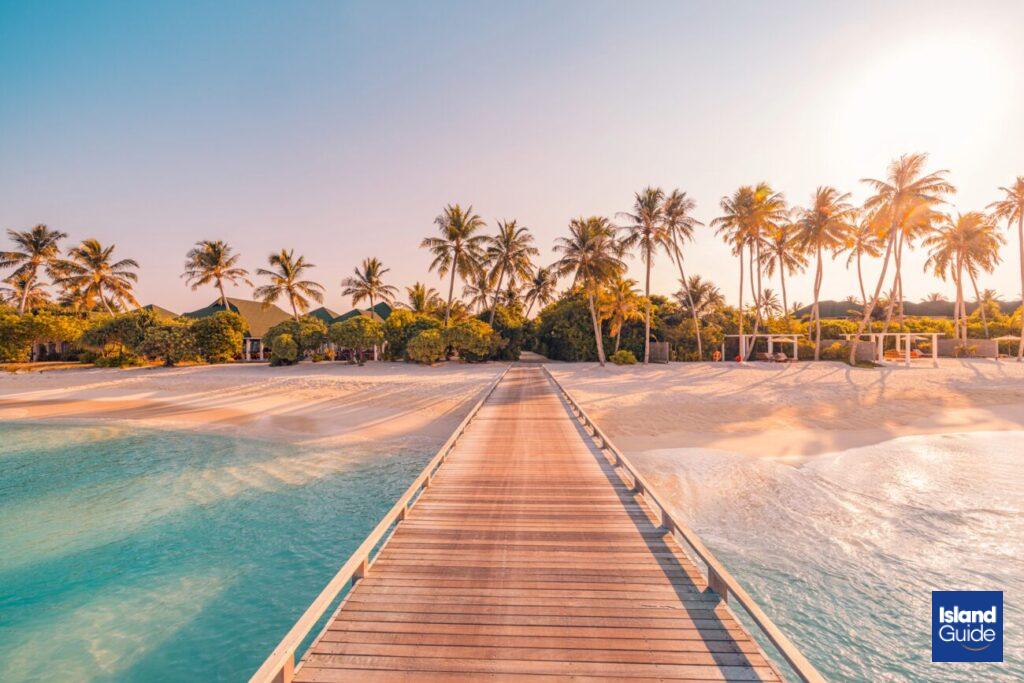
The Maldives is not only renowned for its luxury resorts and overwater accommodations but also for its unique natural beauties. This archipelago stands out with its turquoise waters, white sandy beaches, and magnificent marine life. Here are some of the natural beauties of the island:
- Turquoise Waters: The Maldives is renowned for its distinctive turquoise waters. The clarity of the sea, shallow waters around the islands, and the colorful spectacle created by coral islands offer a visual delight.
- White Sandy Beaches: The beaches of the islands are known for their fine, white sands. These sands are often felt like fine powder when stepped on, contributing to the beauty of the beaches.
- Coral Islands and Reefs: The Maldives is home to stunning coral islands. The reefs surrounding these islands are filled with colorful corals and thousands of marine creatures. They provide an ideal environment for snorkeling and diving activities.
- Lagoons: The Maldives is famous for its shallow lagoons surrounding the islands. These lagoons provide excellent areas for water sports while also being visually captivating.
- Marine Biodiversity: The islands in the Indian Ocean are notable for their unique marine life. Colorful fish, sea turtles, sharks, and many other marine creatures make this region popular for underwater exploration.
- Island Climate and Vegetation: The climate of the Maldives is tropical, and it is covered with rich vegetation. Palm trees, tropical flowers, and lush greenery complement the natural beauty of the islands.
The natural beauty of the Maldives not only offers a paradise for holidaymakers but also for travelers who love to be immersed in nature. These natural riches are being preserved through sustainable tourism efforts.
What is the Importance of the Maldives?
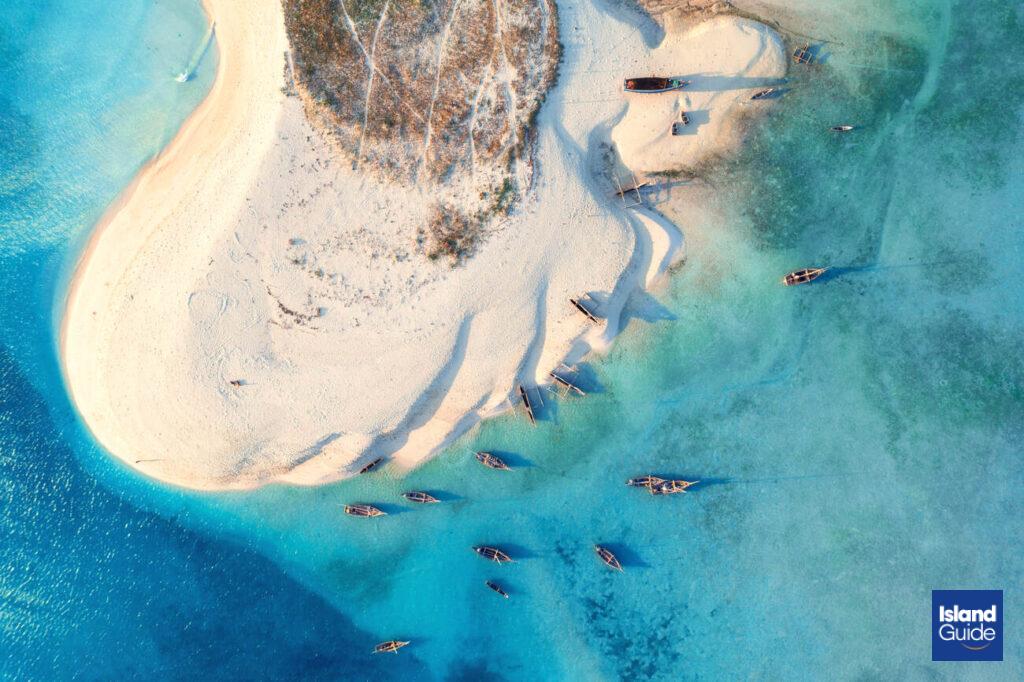
The Maldives holds global significance due to a range of important factors. These factors make the Maldives a unique destination in economic, environmental, cultural, and touristic aspects. Here are some key factors that determine the importance of the Maldives:
Tourism Paradise: Known as a tropical paradise for tourists. Its white sandy beaches, turquoise waters, luxury accommodation facilities, and underwater beauties make the Maldives one of the world’s most popular holiday destinations.
Economic Contribution: A significant portion of its economy relies on the tourism sector. Luxury resorts, overwater accommodations, and marine tourism contribute to increasing the country’s income and creating employment.
Sustainable Tourism Efforts: It is notable for its efforts in environmental sustainability. Many of the islands have been designated as marine protected areas and host various projects aimed at increasing environmental awareness.
Marine Biodiversity: Known for its rich marine life and colorful coral reefs. This ecosystem is an important area for scientists and nature enthusiasts interested in preserving and studying marine biodiversity.
Global Climate Change Advocate: It plays a leading role in combating global climate change. The country is threatened by rising sea levels, and it makes efforts on various international platforms to raise awareness about this issue.
Cultural Diversity: It is known for its historical and cultural diversity. The Maldivian culture, combined with Islamic influences, offers visitors a unique experience.
The economic, environmental, and cultural significance of the island are determining factors in its place and impact on the world. It is also an important player on the international stage for drawing attention to global issues such as climate change and rising sea levels.
Activities and Entertainment
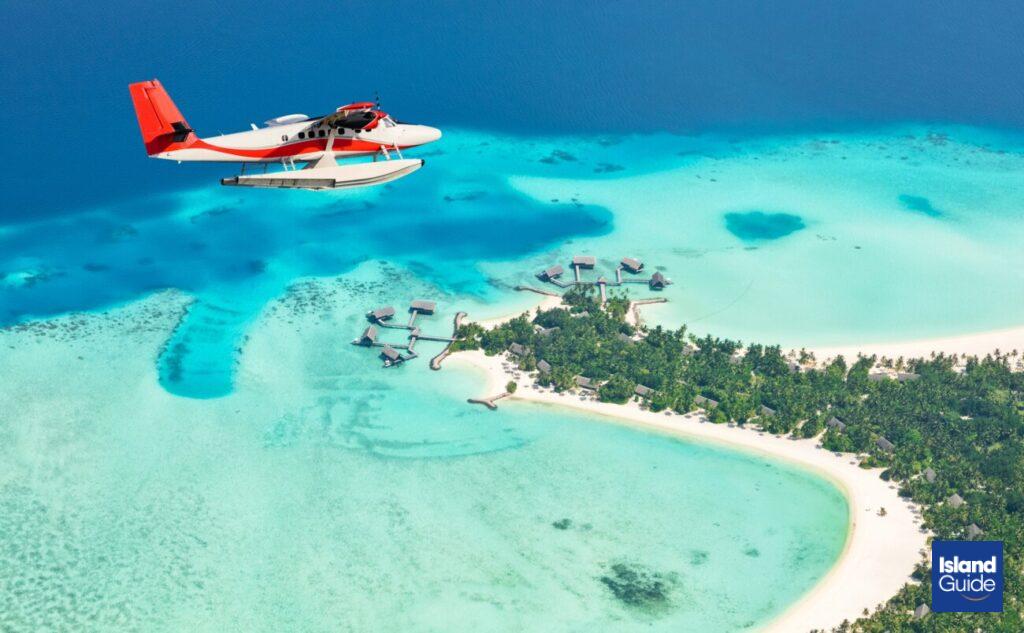
The Maldives is known not only for its natural beauty but also for its various water sports, underwater explorations, and cultural activities. The activities on the islands provide holidaymakers with unforgettable experiences. Here are some activities that can be done in the Maldives:
Scuba Diving and Snorkeling
It is home to some of the world’s most colorful and diverse coral reefs. Diving and snorkeling are ideal for observing colorful fish, corals, and other marine creatures.
Water Skiing and Jet Skiing
The shallow waters in the lagoons provide an excellent environment for water sports such as water skiing and jet skiing. These activities are a great option for adrenaline enthusiasts.
Fishing
It is an excellent destination for fishing. Guided fishing tours are organized with professional guides, offering a delightful experience chasing big fish in open waters.
Island Tour and Cultural Activities
In the Maldives, island tours are organized to explore local islands. These tours provide an opportunity to experience the local culture and witness traditional handicrafts.
Underwater Restaurant Experience
It is famous for its underwater restaurants. Dining underwater amidst colorful coral reefs offers an unforgettable experience.
Traditional Dance Performances
Traditional dance performances are organized for those who want to get to know Maldivian culture better. These performances showcase the richness of local music and dance.
Submarine Safari
It offers the opportunity to explore underwater life by providing submarine safari tours. These tours provide a unique opportunity for those who want to observe the colorful world underwater.
Golf
Some luxury resorts offer guests the opportunity to play golf on golf courses that meet international standards.
These activities in the Maldives offer a wide range to holidaymakers who want to enjoy the unique nature and culture of the islands. Each activity allows you to gather unforgettable memories within the unique atmosphere of the Maldives.
Gastronomy in the Maldives
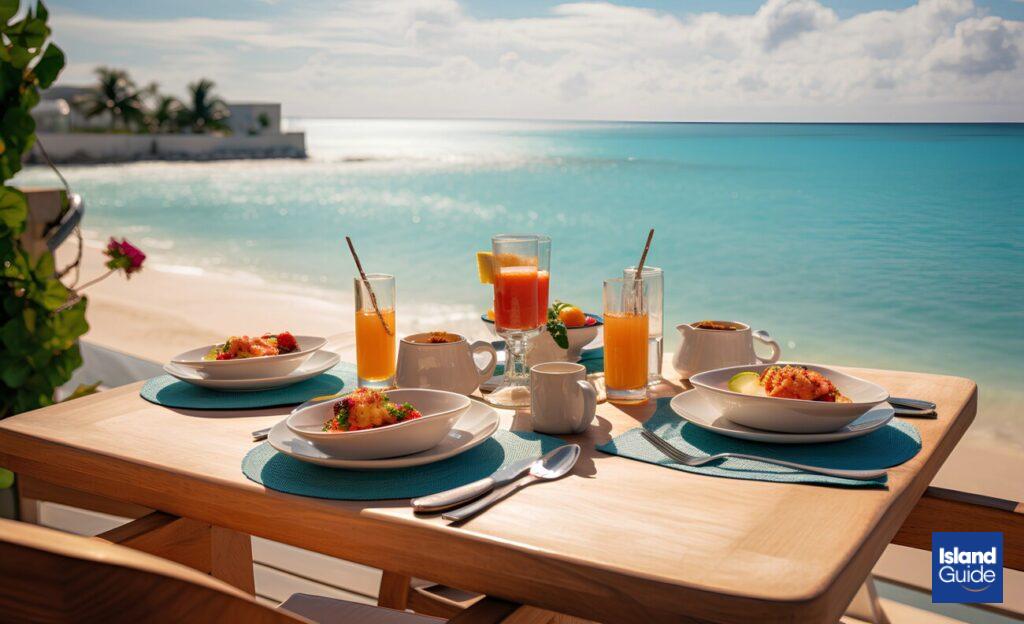
- Maldivian Fish Soup (Garudhiya): This traditional soup, made with fish, coconut milk, onions, and spices, is one of the staple dishes of Maldivian cuisine. It is typically served on special occasions and when hosting guests.
- Mas Huni: Frequently consumed for breakfast, Mas Huni is a mixture containing tuna, coconut, grated coconut, and onions. This mixture is often served with a thin flatbread called roshi or eaten with bread.
- Fihunu Mas: In this traditional dish, typically tuna or reef fish is marinated with spices and coconut and then grilled over a wood fire. Fihunu Mas is a commonly consumed main dish in the Maldives.
- Kulhi Boakibaa: This type of fish cake, made from reef fish and flavored with spices, is often prepared for special occasions or celebrations.
- Banbukeylu Harisa: Made with a mixture of coconut, fish, and spices, Banbukeylu Harisa is a spicy and flavorful fish dish. It is commonly cooked in local restaurants and homes.
- Huni Roshi: Roshi is a type of thin bread and is typically served alongside Mas Huni for breakfast. It has a soft and light texture.
- Fon’du: Fon’du is a dessert made with coconut milk, rice, and spices. It is typically prepared for special occasions and holiday celebrations.
- Tropical Fruits: It is a region where various tropical fruits grow. Fruits such as mangoes, pineapples, papayas, and coconuts are consumed fresh and also used in various desserts and beverages.
The island cuisine is known for creatively utilizing local ingredients and offering unique flavors. Visitors explore the local palate of the Maldives by experiencing this delicious and unique culinary culture.
Accommodation Tips for the Maldives
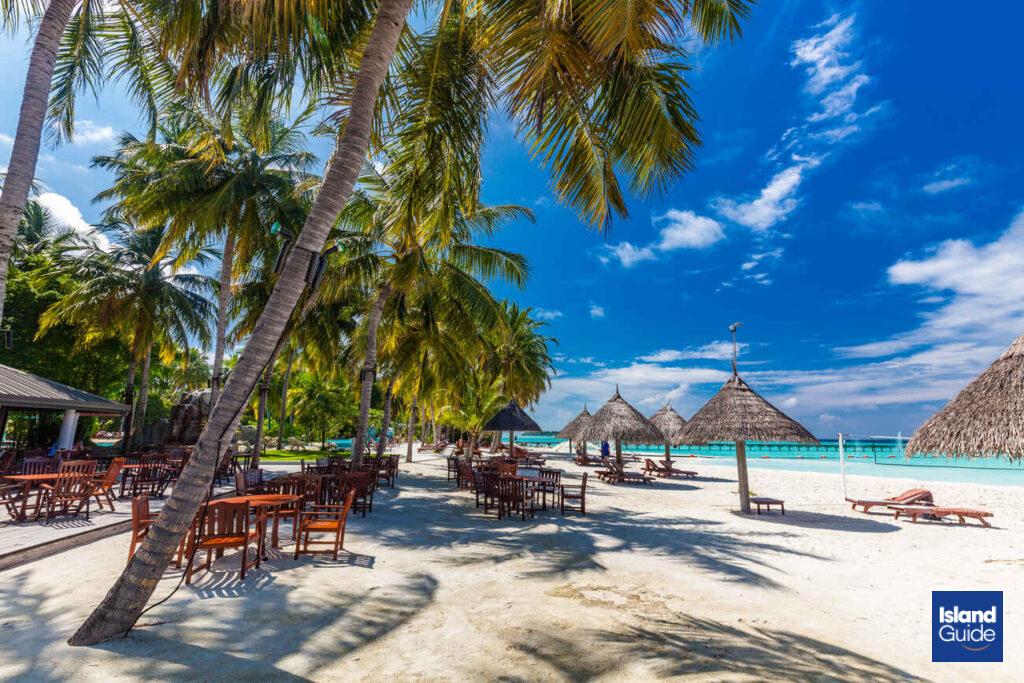
The Maldives is renowned for its luxury resorts, overwater bungalows, and accommodations immersed in nature. Here are some accommodation tips for the Maldives:
Overwater Bungalows: Overwater bungalows in the Maldives are popular among tourists. These luxury accommodation units built over the water offer a unique experience with their private terraces and stairs.
Luxury Resorts: There are many luxury resorts throughout the island. These facilities typically feature private beaches, spa amenities, various restaurants, and water sports facilities.
All-Inclusive Concept: Many Maldivian resorts offer an all-inclusive concept. This means that the price of accommodation includes many advantages such as meals, drinks, and some water sports.
Underwater Accommodation: Some luxury resorts offer underwater accommodation options. Staying in underwater rooms provides the opportunity to observe colorful coral reefs and fish underwater.
Nature Resorts and Eco Accommodation: There are many ecological hotels and eco-friendly accommodation options for those who want to stay close to nature. These facilities focus on sustainable tourism principles, offering an environmentally friendly lodging experience.
Island-Based Accommodation: Accommodation options are also available on some local islands. This provides visitors with the opportunity to experience local culture more closely.
Conclusion
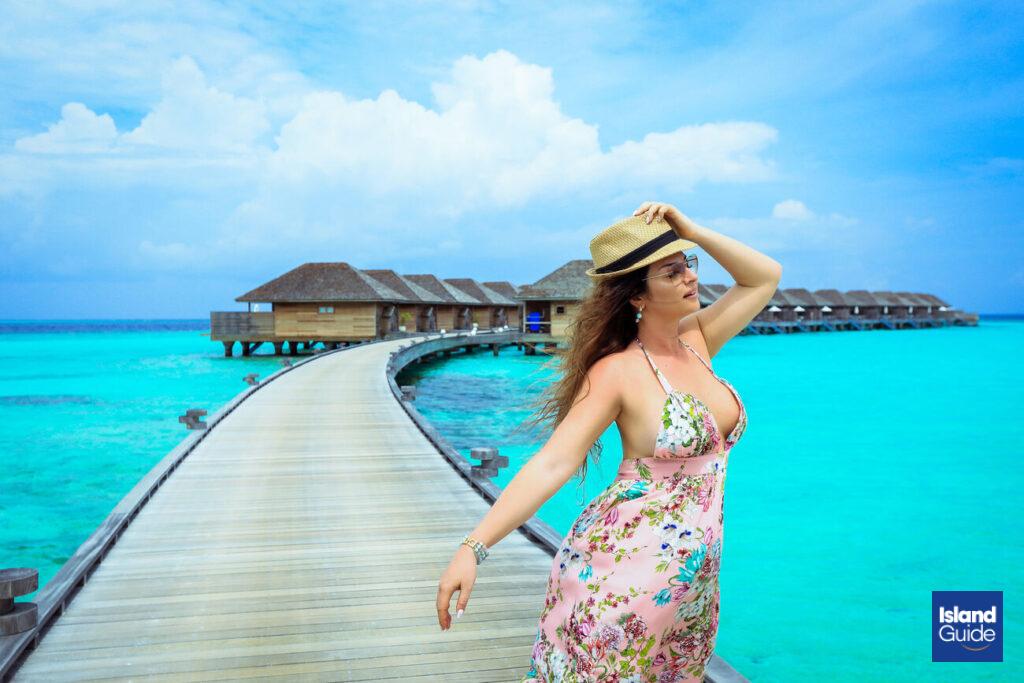
Maldives is renowned for its unique natural beauty, rich marine biodiversity, luxurious accommodation options, and warm hospitality, making it a sought-after destination. This tropical paradise offers tourists the opportunity to create unforgettable memories. Here’s a general conclusion about Maldives:
Visiting the Maldives is perfect for those who want to snorkel in its turquoise waters, stay in luxury resorts, relax on white sandy beaches, and explore vibrant coral reefs. The country’s historical and cultural richness, the chance to taste local delicacies, and its commitment to sustainable tourism efforts further enhance the allure of this unique destination.
The island is particularly favored for honeymoon getaways. Romantic stays in overwater bungalows, intimate meals at underwater restaurants, and the opportunity to watch the sunset from a private boat offer couples an unforgettable honeymoon experience.
In conclusion, the island stands out as one of the world’s most exceptional holiday destinations, thanks to its natural beauty, cultural diversity, and luxurious vacation options. This tropical paradise promises an unforgettable holiday experience that appeals to all types of travelers.



